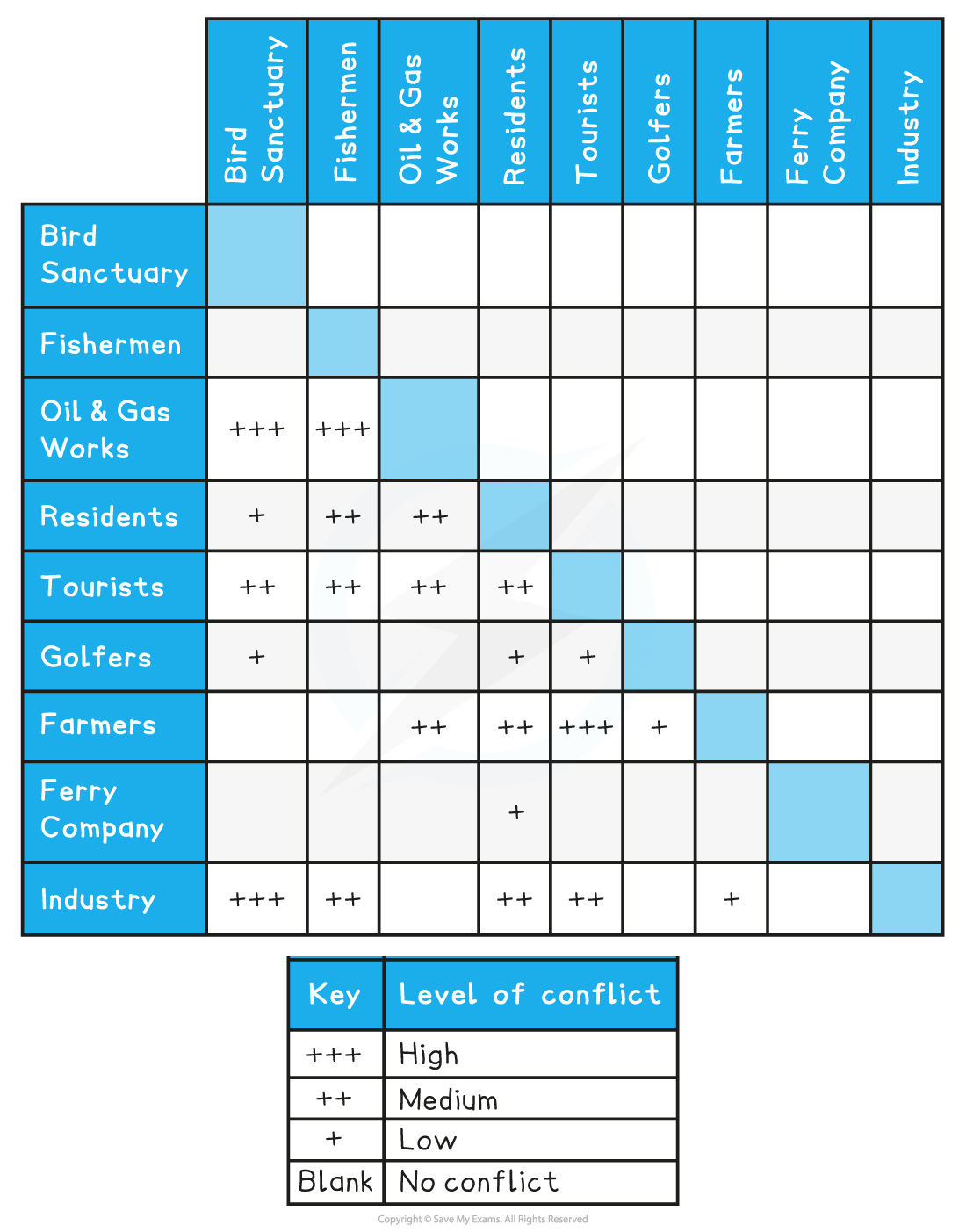Conflict Between Development & Conservation
- Careful management of coastal regions is necessary for sustainability
- Coastal environments have multiple uses:
- Development such as homes, shops, roads etc.
- Nature reserves
- Industry such as ports, fishing and aquaculture
- Tourism
- Agriculture
- These different activities bring people and ecosystems together and there becomes a competition for space
- Conflict arises when coastal development is given a higher priority than coastal conservation
Exam Tip
Make sure you consider all the options here. Conflict resolution can be achieved by a mix of strategies, but achieving this is not always straightforward. Therefore, you need to be able to debate this.


